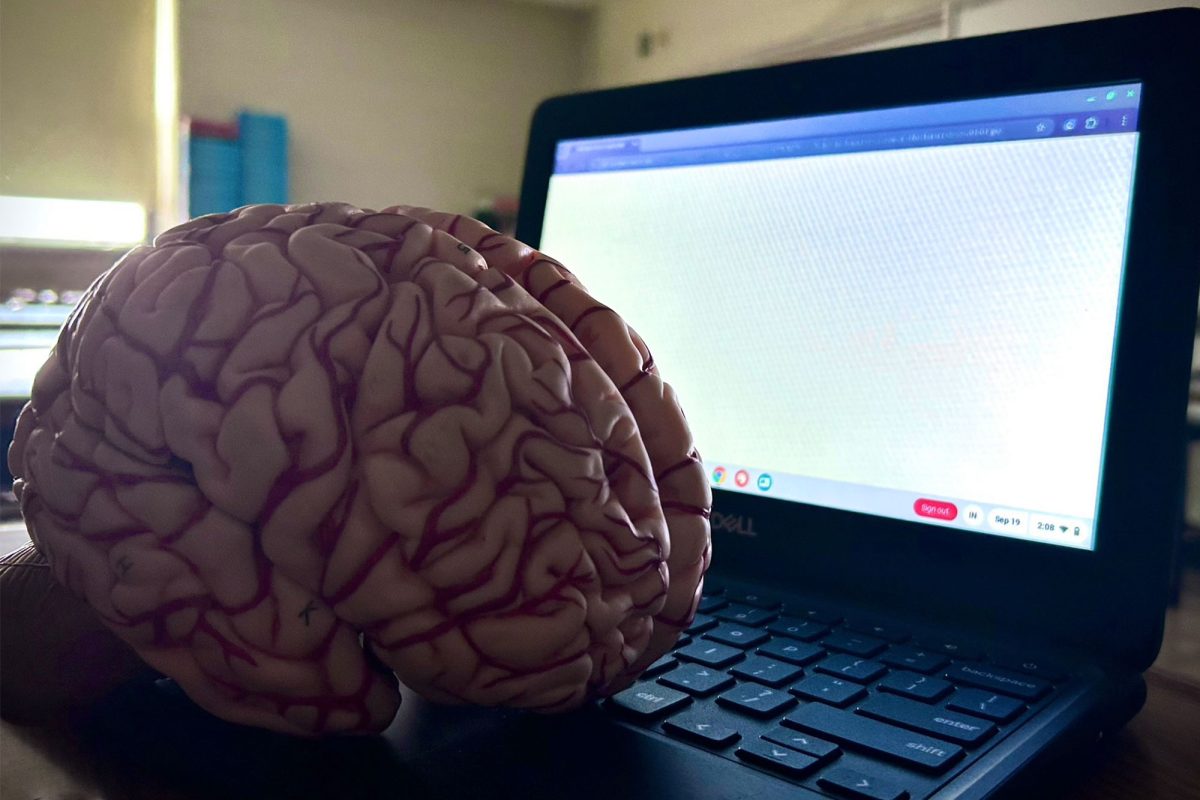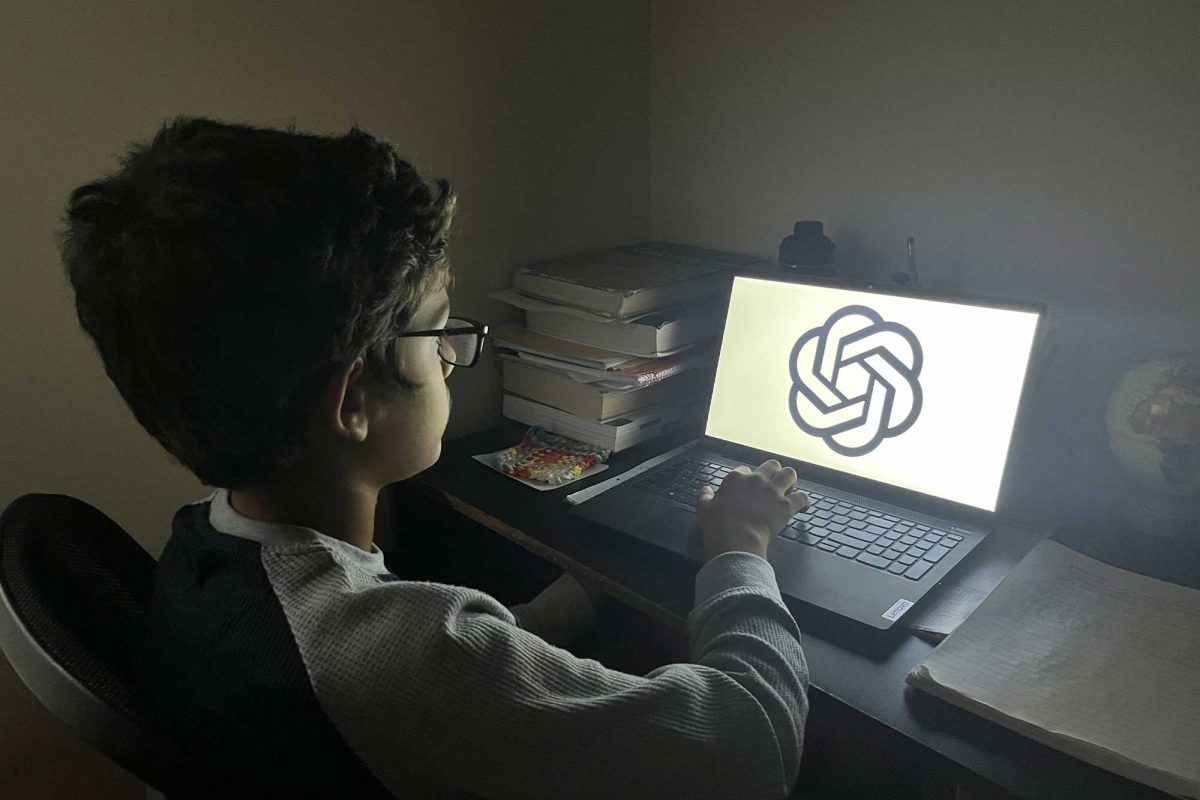“Screens Off Minds On” might seem like just another set of rules imposed on students by adults, but the science behind the recent campaign is hard to dismiss.
Growing research in neuroscience and psychology shows that a lot of time spent on screens can negatively impact teens’ ability to focus and learn, as well as their mental health.
According to a 2023 study by researchers at Common Sense Media, 97% of teenagers reported that they use their phones during the school day. Overall, 32% of students use social media, 26% watch videos on YouTube, and 17% play games on their phones during school hours.
Many of these apps are designed to stimulate the brain’s reward system by releasing dopamine, a neurotransmitter that makes the brain feel good.
“Dopamine is our happy neurotransmitter. It’s the thing that you know, when we’re doing something enjoyable, it floods the brain,” AP Psychology teacher Mrs. Amanda Lawson said.
This can coincide with screen usage with teens as well, Lawson said.
“Well, your brain wants more of that dopamine, so it keeps scrolling, and keeps scrolling, and it keeps getting you checking your phone. So even when you’re not scrolling, you’re craving that dopamine,” Lawson said.
Scrolling on phones at night can also affect a student’s performance in school. The blue light from screen displays delays the production of melatonin, the hormone that is responsible for sleep regulation, and disrupts sleep cycles. Chronic sleep deprivation can lead to little or no REM sleep, a deep sleep in which we dream as well as process information and store it in memory.
“Part of your melatonin release is the sun going down. And so when the eyes are still taking in light, they don’t think it’s time to go to bed. So it delays your melatonin release, it delays your sleep, which causes you all kinds of problems,” Lawson said.
A Harvard Medical School research article, ‘Screen Time and the Brain,’ by Debra Bradley Ruder mentions how this kind of sleep disruption can affect students in school when talking with the director of the Central on Media and Child Health at Boston’s Children’s Hospital, Dr. Michael Rich.
“So even if they [students] stay awake in algebra class, they may not remember what happened in class yesterday,” Rich stated in the article..
Concerns about how phones and social media are affecting teens’ mental health seem to be a driving factor in many of the phone policies and bans at schools around the country, sparked by national health warnings.
This includes the 2023 advisory from U.S. Surgeon General Dr. Vivek Murthy, which warned that prolonged social media use can expose teens to bullying and damage their self-esteem, contributing to anxiety and depression.
Murthy also emphasizes ideas that others have mentioned, such as screen time and social media ruining sleep schedules and quality time with friends and family.
Indeed, a lot of news and research about the effects of phones and screen time on the brain is grim. However, researchers believe that there is a more neutral and straightforward way to look at the situation.
“We don’t want to be in a moral panic because kids are staring at smartphones. We need to be asking, ‘What’s happening when they’re staring at their smartphone in terms of their cognitive, social, and emotional development?” Rich said in ‘Screen Time and the Brain’.
Looking towards the future of technology and teens, Rich mentions how there will continue to be both positive and negative effects on the brain. However, there are ways we can improve our mindset.
“Going forward with our eyes open, how can we enhance the positive and mitigate the negative?” Rich said.










